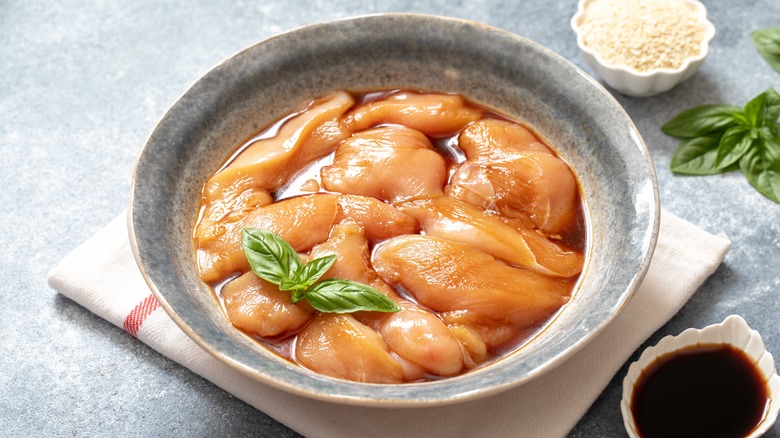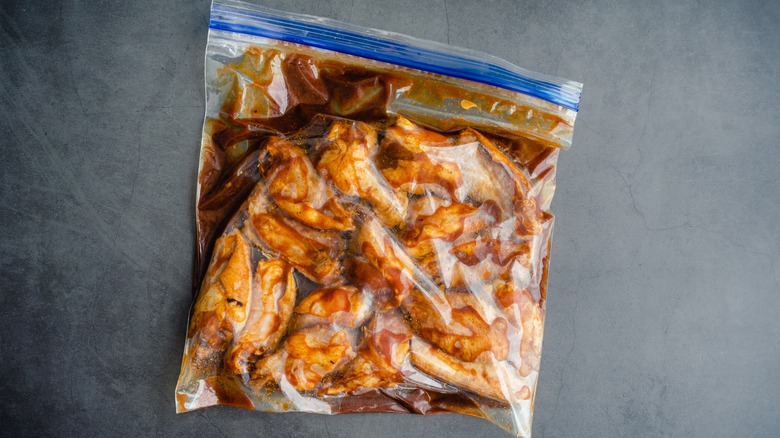The Salty Difference Between A Brine And A Marinade
The secret to a truly mouthwatering piece of meat is to cook it to perfection, being careful not to overcook it and dry the protein out. However, many recipes require either the extra step of brining the meat or allowing it to spend some time in a marinade, both designed to help level up the final product you're making.
You might think the two are similar, given that they're both steps taken before a protein hits the pan, grill, or oven to be cooked. There is one key difference, though, and it has a little something to do with what each process is trying to achieve.
A brine is all about salt, to put it simply. Yes, many brine recipes call for additional ingredients to infuse a bit of extra flavor into the meat, but the main purpose of brining is to help keep the meat as juicy as possible by allowing the salty brine to push extra water into the meat.
A marinade, on the other hand, is all about flavor. Though many marinade recipes include an acidic element such as vinegar or citrus juice that's supposed to tenderize the meat being marinated, the primary goal of a marinade is to pair the meat's natural flavor with ingredients that add a little something extra to the equation. While most will contain salt, it's just one of many ingredients rather than the most important one.
How long to brine or marinate your meat
Whether you go with a brine or marinade, you want to be mindful of how long the meat is in your chosen mixture.
The larger your cut of meat, obviously the more time it will need in brine. A good rule of thumb is to plan for about an hourof brining time per pound of meat. If you're not sure whether your meat has been in the brine solution for long enough, there's a simple way to tell. Weigh your cut of meat before it goes into the brine, and then do so again once you think the brining is finished — if everything has gone according to plan and all that extra moisture has been pushed into the protein, the meat should be slightly heavier after brining.
However, note that there can be too much of a good thing. Allowing your meat to remain in the brining solution for ages won't automatically lead to a more tender final product. Instead, it can give the meat an unappealingly mushy texture, or in the case of smaller proteins like shrimp, could even dry it out.
Marinating has a similar set of parameters. Though you may have heard tales of proteins marinating for days on end, in reality, you don't really want to go past the 24 hour mark . This is because protein left too long in your marinade will often take on a less than appetizing texture, just like overly brined meat does.

